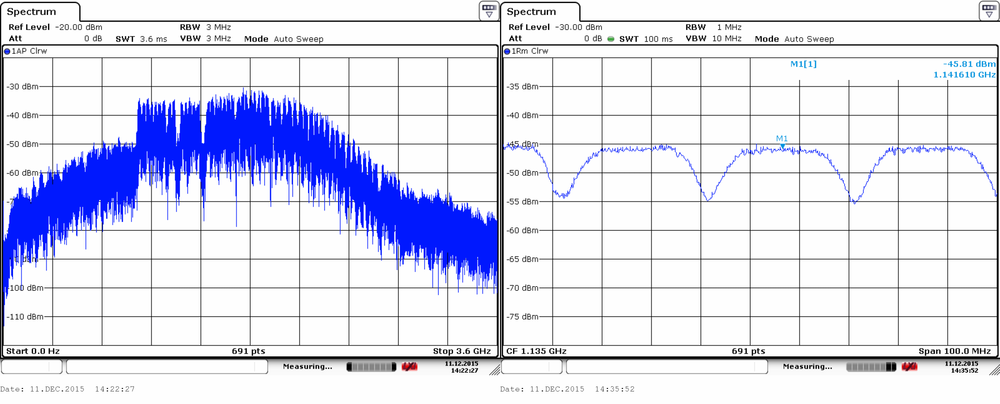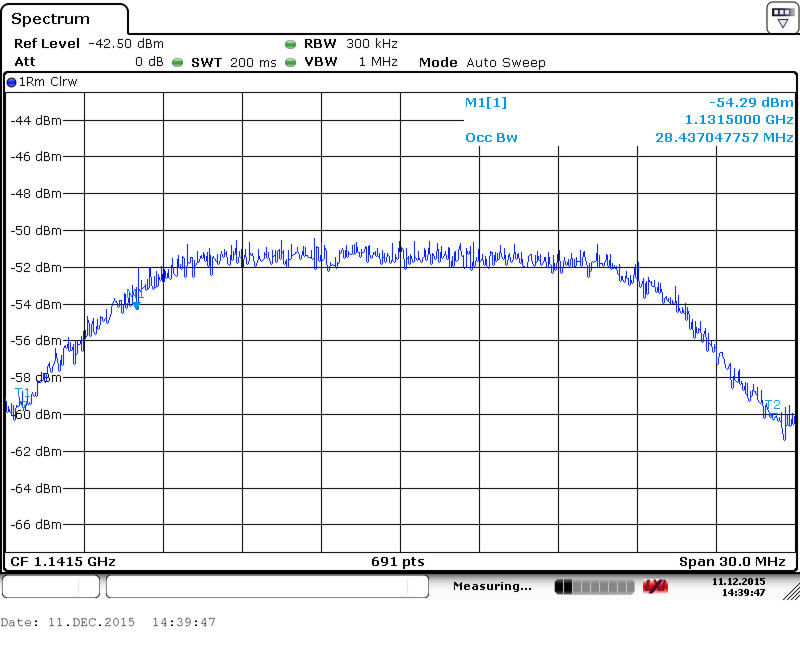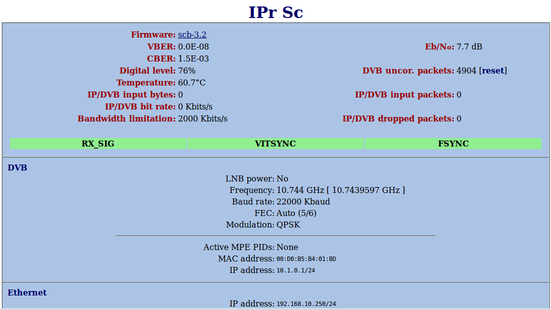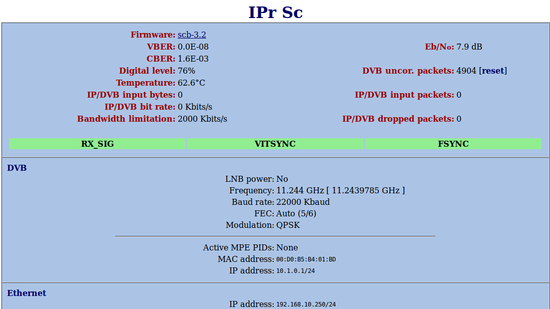Application » History » Version 2
« Previous -
Version 2/50
(diff) -
Next » -
Current version
GOMEZ, Ramon, 12/12/2015 07:53 PM
- Table of contents
- 5. Application
5. Application¶
This section explains how the Outdoor system has been installed and the results obtained measuring a real TV signal from a Satellite.
5.1 Preparation¶
The optical transmitter has been put in an hermetic box.
Its interface consists of :
- The power supply plug to be connected to the mains ;
- The optical fiber harness (2 fibers) : only the red fiber is actually connected to optical transmitter ; the black fiber is not used, it will enable to have a b ;
- The type F coaxial cable to connect the Antenna Low Noise Block, LNB, to optical transmitter.
Optical transmitter is set to :
- To supply 18 V to LNB, which selects Horizontale polarization ;
- To provide 0 kHz tone to LNB, which set its Local Oscillator to 9.75 GHz to transpose lower Ku Band from 10.7 to 11.7 GHz into IF Band.
- This hermetic box has been mounted on Antenna mast. This Antenna is pointing to Astra 1KR/1L/1M/1N colocalized satellites on 19.2° East.
5.2 Trials¶
5.2.1 Inter Frequency Spectrum with Optical Link¶
RF output from Optical receiver has been analyzed with Rohde & Schwartz FSV spectrum analyzer :

IF Band, 1 Channel (with Optical Link)
It is possible to distinguish several channels within the Inter Frequency, IF, band. There is a zoom on left side. The 3 dB channel bandwdith is 22 MHz.
The power is about -32 dBm for the channel centered around 1141 MHz.

TV channel at 1141 MHz
5.2.2 Link Quality with Optical link¶
First, optical link performance enables to have a good TV quality (for example, Eins Plus on 10744H). More deeply, physical link quality has been assessed with the information provided by IPRICOT SCB router.
This data has been compared with data from website like [www.lingsat.com] :


Physical link parameter at 10744 MHz

Physical link parameter at 11244 MHz
